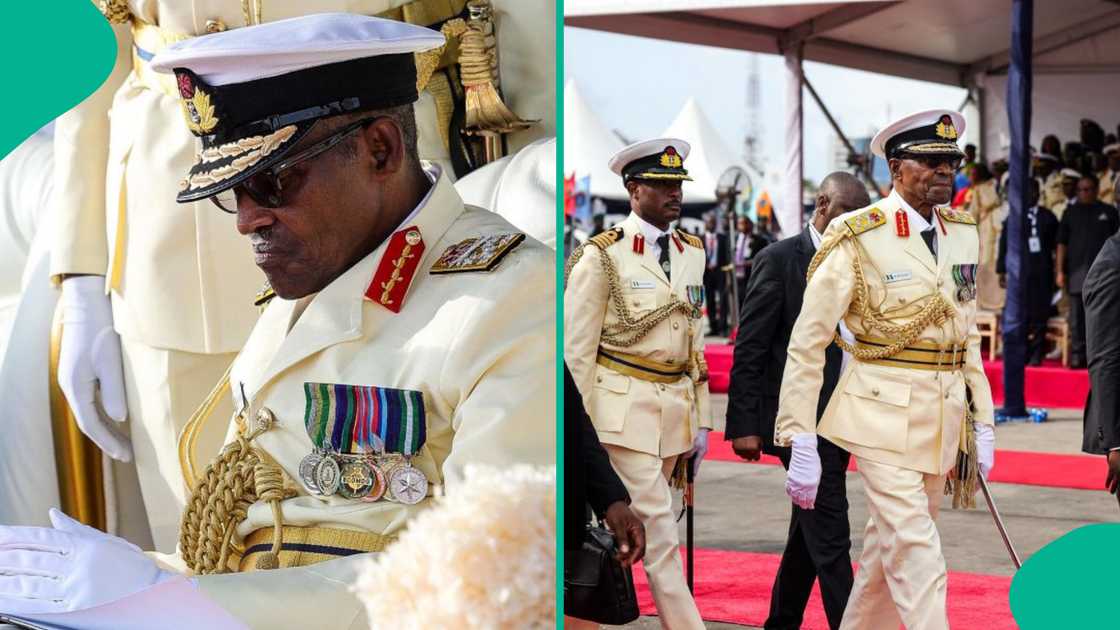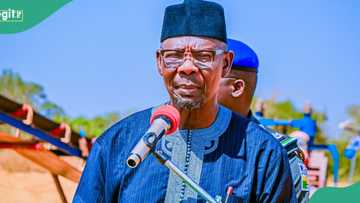Transforming Coup in Nigeria's History: Rise of Buhari and Fall of Shagari as Head of Nation
- In January 1, 1984, Nigeria experienced a pivotal moment as martial music signaled the end of Shehu Shagari's presidency and the rise of a new military regime under Major-General Muhammadu Buhari
- The coup, executed while the nation celebrated New Year's Eve, came amidst economic turmoil and social unrest
- The transition marked the beginning of Buhari's era, promising a war against corruption and a shift away from the previous government's excesses
CHECK OUT: Education is Your Right! Don’t Let Social Norms Hold You Back. Learn Online with LEGIT. Enroll Now!
In the dim hours of January 1, 1984, Nigeria's fate took a dramatic turn.
As the city of Lagos lay in a post-celebratory slumber, the airwaves crackled with martial music, signaling the end of Shehu Shagari’s presidency and the beginning of a new military regime.

Source: Getty Images
This was not just a coup; it was the prelude to a series of seismic events, stretching far beyond Nigeria's borders and culminating in one of the most audacious political kidnappings of the modern era, centered around the elusive Umaru Dikko.
The night of December 31, 1983, Lagos, then the capital of Nigeria, was electric with New Year's Eve festivities.
Friends and families congregated in joyous celebration, their laughter masking a deeper unease.
Nigeria was in turmoil. The year had been marred by social, political, and economic instability. The crash in global oil prices in 1982 precipitated a severe recession for a nation heavily dependent on oil revenues. Inflation soared, food prices escalated, and crime became rampant, while the government, burdened by mismanagement, struggled to pay salaries. The country was on edge.
In a desperate bid to scapegoat, President Shagari’s government expelled over two million immigrants in early 1983, with more than half being Ghanaian nationals—a move that led to the infamous “Ghana Must Go” exodus.
Despite these draconian measures, Nigeria's economic plight worsened, and yet Shagari secured re-election in August 1983 elections.
As economic despair continued to grip the nation, the military plotted in shadows. In the early hours of December 31, 1983, while Nigerians partied, prayed, or simply slept, soldiers moved with quiet precision. By 9 am on January 1, the unmistakable strains of martial music broadcast across television and radio confirmed the unthinkable.
Brigadier Sani Abacha, a key orchestrator of the coup, announced the overthrow of Shagari’s government, citing “inept and corrupt leadership, economic uncertainty, and embarrassing levels of unemployment” as justifications.
With Shagari ousted, Major-General Muhammadu Buhari stepped into the spotlight as the new head of state. Born in Daura, Katsina State, on December 17, 1942, Buhari was known for his discipline and stoic demeanor.
He enlisted in the Nigerian Military Training College in 1962 and swiftly rose through the ranks. His reputation for integrity and firmness made him an ideal figure to cleanse the nation of corruption.

Read also
Pastor Tobi Adegboyega, Egungun, VDM, 6 other celebrities who sparked major controversies in 2024
Historian Mike Siollun observed that Buhari’s regime was welcomed with open arms, as the public and press, disillusioned by the previous kleptocratic rule, longed for decisive change.
Buhari's ascension promised a war against corruption, resonating with a populace eager for accountability. The new regime’s initial goodwill was palpable, as Nigerians hoped for a departure from the excesses of the past.
The political elite, once untouchable, now found themselves vulnerable, transforming overnight from rulers to fugitives.
Cabinet of Shehu Shagari in 1983
Previously, Legit.ng earlier reported that Shagari formed government of Nigeria between 1979 and 1983 with the National Party of Nigeria after the return to civilian rule with the Second Nigerian Republic.
He appointed 61 ministers, of whom 24 were of cabinet rank. The ministers were both Muslims and Christians.
Source: Legit.ng




